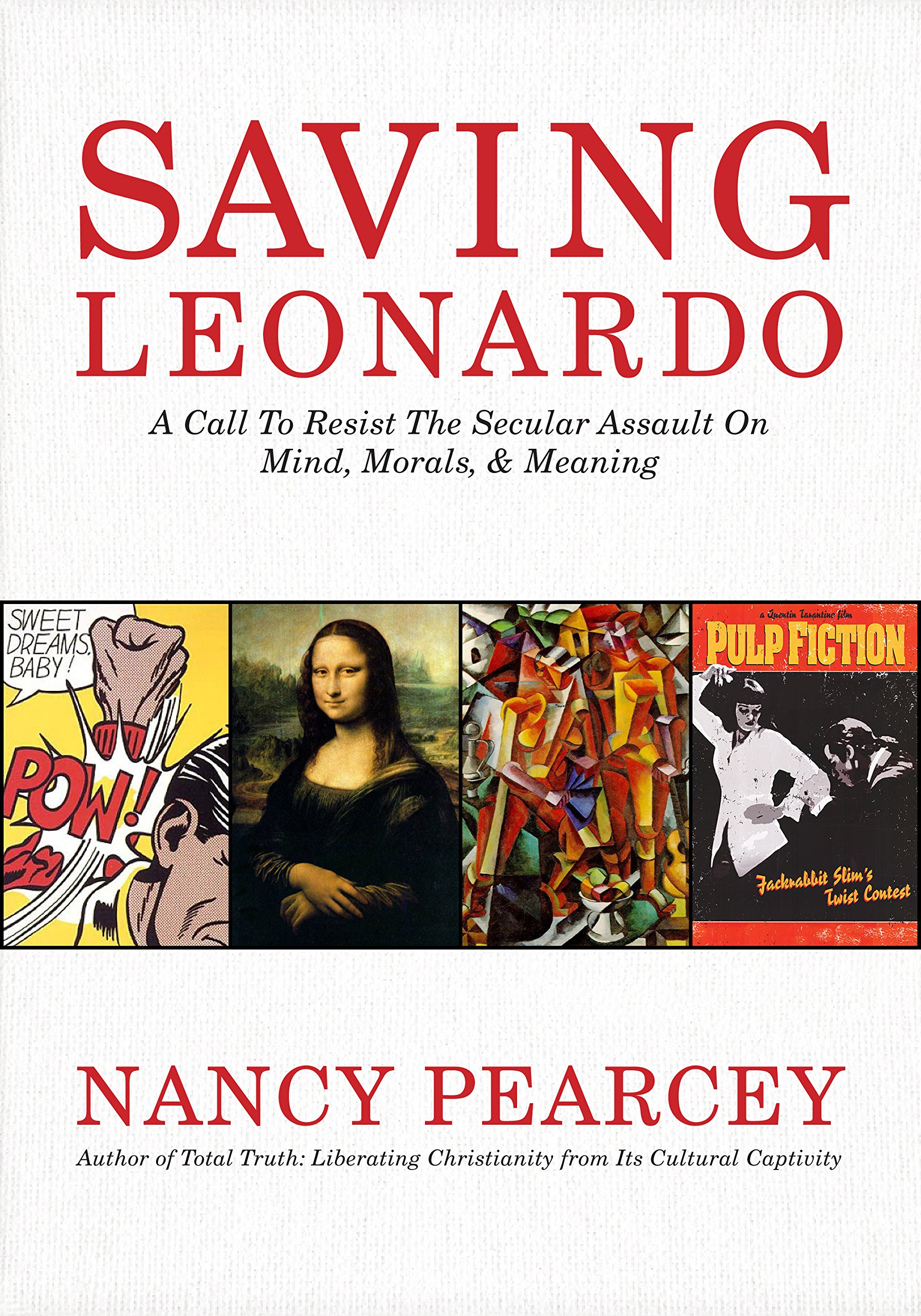By: Nancy Pearcey (Nashville: B&H Publishing Group, 2010)

Summary:
The primary question concerning Saving Leonardo is whether “secularism [is] a positive force in the modern world.” Nancy Pearcey, evangelical author and professor, answers with an emphatic no and sets out to teach her readers how to “recognize and resist” secularism. Written in a textbook-style yet engaging manner, the book details and dissects the worldviews of Western Civilization, from the ancient Greeks through those of present day, with particular focus on a culture’s art. She bases her analyses on the assumption of a cultural fact/value split: “the idea that humans can have genuine knowledge only in the realm of empirical facts. Morality [is] reduced to subjective preferences.” The secular state of present-day culture is a result of “two paths to secularism,” the first being the Enlightenment focus on facts/materialism and the second the Romantic obsession with values/idealism. Now, the public, objective, and universal natures of science and industry are separated from the private, subjective, and relative aspects of disciplines such as theology and aesthetics. Pearcey declares this a false dichotomy.
“Those with the authority to define what qualifies as knowledge wield the greatest power.” That can occur in business, politics, academia, or healthcare. In many ways agreeing with James Davison Hunter in To Change the World, Pearcey says, “Ideas are born, nurtured, and developed in the universities long before they step out onto the political stage.” Her final conclusion? That “[r]ecovering the unity of truth is the key to renewal, both in the church and in the culture.”
Themes:
- Personhood. Culture now differentiates between persons and humans, or the person and the body.
- Truth. Dividing truth fragments the human being.
- Affirmation. Christianity can affirm the parts of any worldview that are true. In this, Christianity maintains the greatest amount of intellectual freedom.
- Secularism. “The best way to counter secular idols is by offering something better” and not only by criticizing.
- Postmodernism. Postmodern thinkers challenge absolute power by challenging absolute truth.
Discussion Questions:
- Why is the book called Saving Leonardo?
- Apply the fact/value split to the “hook-up” culture concepts of physical/personal.
- How does the book connect a divided concept of truth to a divided concept of human nature?
- The academy has been dominated by the triumvirate of class, gender, and race. Is the focus now shifting to religion?
- What is art? Try to define it and explain what it does.
- Art was once understood to be the representation of reality. How did the shift to art being a means of personal expression occur?
- In modern art, how did worldview come to trump aesthetics?
- “Artists are society’s barometers.” Is that all artists are?
- “In every worldview there is a grain of truth?” Do you agree?
- Pearcey calls for Christians not to simply combat and critique culture, but to create. Does she give us the tools to do this?
Drew Trotter